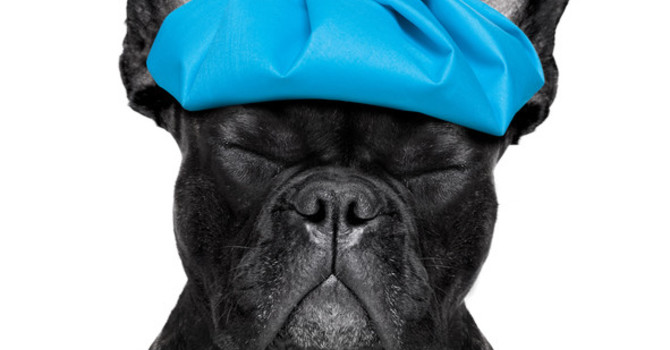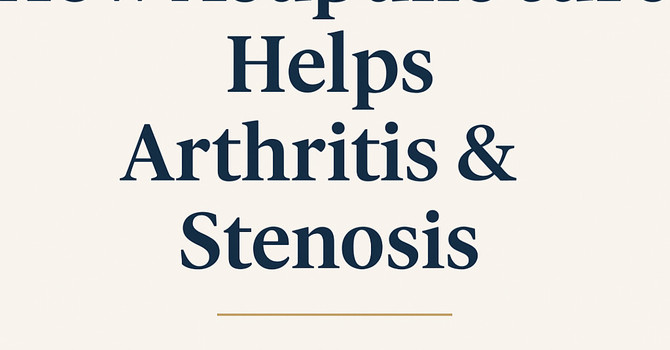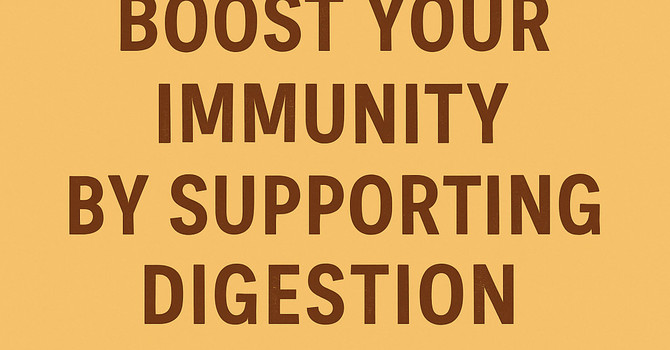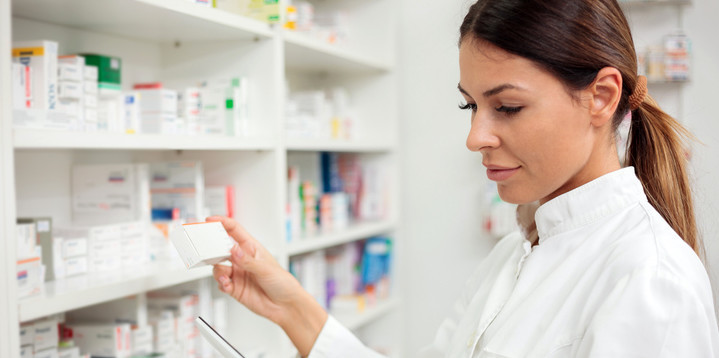
Why We Feel Anxious
Anxiety is a natural process experienced by almost every animal on earth.
When something threatens our well-being, the stress response takes action and gives us the needed boost to get us out of harm’s way—we call this the “fight or flight” system.
Unfortunately, our stress response can become dysfunctional over time —causing us more harm than good.
This dysfunctional stress response produces anxiety over non-life-threatening stressors; public speaking, traveling, and social interactions with colleagues or classmates.
Even a mild stress trigger can become a serious anxiety attack, leading to heart palpitations, dizziness, sweating, and difficulty breathing. Everyone experiences anxiety differently. High-stress, over long periods of time can make you feel as though you no longer have control of your life, constant worrying and feeling out of touch from reality are serious effects of anxiety.
Anxiety can become overwhelming.
According to the National Institute of Mental Health, roughly 18% of the American population are reportedly affected by anxiety disorders.. That accounts for close to 60 million people across the United States alone.
Now let’s get into some of the best supplements you can use to alleviate anxiety symptoms—and feel great every day.
Best Supplements for Anxiety
1. Kava (Piper methysticum)
Kava is by far one of the best herbs we have available for treating anxiety. It’s a fitting use for a plant that comes from the easy-going Polynesian islands of the South Pacific. This herb works by interacting with our primary relaxing neurotransmitter—GABA.
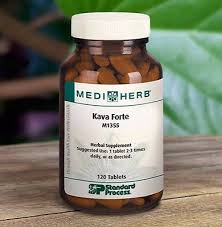
GABA is the brake pedal for our nervous system. When we become too stimulated, GABA steps in to slow us down. It’s a critical part of resisting anxiety in the brain. When GABA is impaired, anxiety is almost always the first symptom.
Kava doesn’t activate GABA directly, rather, it makes the GABA we have work more efficiently [1].
This is a similar action the powerful anti-anxiety drugs known as benzodiazepines use to treat anxiety. The main difference is that kava is significantly safer than benzodiazepines — which are highly addictive and increase the risk of serious psychological harm with long-term use.
Clinical trials support the use of kava as a powerful anti-anxiety supplement—comparable in effectiveness to the pharmaceutical anti-anxiety medications, Buspirone and Opipramol [2].
2. Passionflower (Passiflora incarnata)
I have yet to meet a herbalist who doesn’t keep passionflower on-hand for their anxious patients.
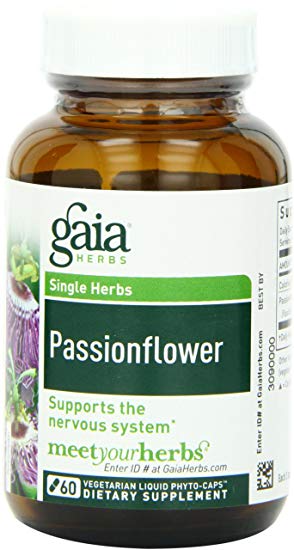
This is by far one of the best anxiety herbs available and is even gentle enough to use on children.
Like kava, passionflower owes at least part of its anti-anxiety benefits to its ability to boost GABA in the brain [3]. It doesn’t end here, passionflower uses a combination of other actions to oppose feelings of anxiety, including:
- Eases muscle tension [4]
- Antidepressant [5]
- Protects the brain from the negative effects of stress [6]
- Reduces insomnia symptoms [7]
- Eases side-effects of menopause [8] — a common cause of anxiety
All of these effects combine together to provide relief from anxiety symptoms. Some people take supplemental forms of this herb on a daily basis to prevent anxiety attacks, while others use it on an as-needed to manage symptoms.
3. Vitamin B Complex
B vitamins are essential for our health and well-being. They play many roles in the body including neurotransmitter production, energy metabolism, and hormone regulation. If B vitamins are depleted, these processes can become dysfunctional—leading to anxiety.
It’s actually easier to become B vitamin deficient than you might think. The problem is that B vitamins are water-soluble compounds and therefore can’t be stored in fat.
Our bodies have no efficient way of storing B vitamins, so we need to continue to source them through our diets or we’ll become deficient.. Alcohol consumption, pregnancy, exercise, and high stress can all deplete B vitamins. If this is combined with a diet low in B vitamins, we’re going to start experiencing problems—including anxiety.
Although the B vitamins are each unique, and play a specific role in the body—many of the signs and symptoms of B vitamin deficiencies mimic each other. For this reason, I always recommend using a B vitamin complex. A complex contains all the B vitamins, rather than just one or two at a time.
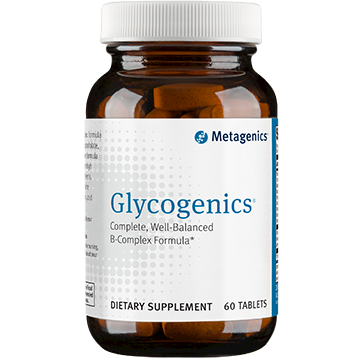
Because we don’t have a way to store B vitamins, we use what we need form the supplement, and eliminate the rest through the urine.
The most important B vitamins for anxiety symptoms include:
- Vitamin B3: Involved in the regulation of nervous system activity.
- Vitamin B6: involved with the production of neurotransmitters such as dopamine, serotonin, and norepinephrine.
- Vitamin B9: heavily involved in the maintenance of healthy brain function (homocysteine cycle)
- Vitamin B12: involved in blood cell production and maintenance of healthy brain function (homocysteine cycle)
4. CBD (Cannabis sativa extract)
Recently, CBD supplements have become a huge trending topic around the world.
As one of the primary compounds in the marijuana plant, there was a heavy stigma around the supplement less than a decade ago. Now, the compound revered as one of the most useful therapeutic plant extracts available.
CBD (cannabidiol) is non-psychoactive—meaning it won’t make you feel high. Unlike THC (the main psychoactive component of marijuana), CBD acts as more of a modulator within the brain than a stimulant.
Each of us have a specialized system of receptors known as the endocannabinoid system (ECS). This system is responsible for helping our nervous system keep tabs on the body as a whole—helping us to keep metrics such as blood pressure, body temperature, hunger levels, and the response to stress within a healthy range (homeostasis).
If this system becomes weak or dysfunctional, CBD steps up to give it a boost. The results are profound.
A large clinical trial investigated the effects of CBD supplementation on public speaking-related anxiety [9]. Researchers in the study concluded that CBD use significantly reduced anxiety symptoms before, during, and after the public speaking event. They even noted that the effects were comparable to diazepam—a powerful pharmaceutical anti-anxiety medication.
There are a few ways you can start using CBD for your anxiety symptoms:
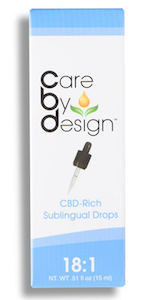
- CBD oils
- CBD vape oils
- CBD capsules
- CBD edibles
You can find these products at your local health shop or dispensary—thanks to recent changes in the regulation of CBD, it’s now completely legal across the United States as long as it contains less than 0.3% THC.
Tips for Getting the Most Out of Your Supplements for Anxiety
There are a lot of herbs and supplements used to reduce anxiety symptoms—the ones outlined in this article are just a few of my favorites.
The truth is that the best treatment for anxiety is still going to be effective stress-management through diet and lifestyle modifications. The first and most important step in reducing anxiety symptoms is to identify the cause of the anxiety. Whether it’s a challenging personal relationship, work stress, or nutritional deficiencies, the issue won’t be disappear completely until the underlying cause is resolved. Once you’ve begun making lifestyle changes consider trying an herbal supplement like Kava or Passionflower to provide additional support.
References
- Jussofie, A., Schmiz, A., & Hiemke, C. (1994). Kavapyrone enriched extract fromPiper methysticum as modulator of the GABA binding site in different regions of rat brain. Psychopharmacology, 116(4), 469-474.
- ner, R. J., Sommer, H., Berger, W., Kuhn, U., Schmidt, U., & Mannel, M. (2003). Kava-Kava extract LI 150 is as effective as Opipramol and Buspirone in Generalised Anxiety Disorder–an 8-week randomized, double-blind multi-centre clinical trial in 129 out-patients. Phytomedicine, 10, 38-49.
- Elsas, S. M., Rossi, D. J., Raber, J., White, G., Seeley, C. A., Gregory, W. L., … & Soumyanath, A. (2010). Passiflora incarnata L.(Passionflower) extracts elicit GABA currents in hippocampal neurons in vitro, and show anxiogenic and anticonvulsant effects in vivo, varying with extraction method. Phytomedicine, 17(12), 940-949.
- Karaki, H., Kishimoto, T., Ozaki, H., Sakata, K., Umeno, H., & Urakawa, N. (1986). Inhibition of calcium channels by harmaline and other harmala alkaloids in vascular and intestinal smooth muscles. British journal of pharmacology, 89(2), 367-375.
- Jesse, C. R., Donato, F., Giacomeli, R., Del Fabbro, L., da Silva Antunes, M., de Gomes, M. G., … & Souza, L. C. (2015). Chronic unpredictable mild stress decreases BDNF and NGF levels and Na+, K+-ATPase activity in the hippocampus and prefrontal cortex of mice: Antidepressant effect of chrysin. Neuroscience, 289, 367-380
- Yao, Y., Chen, L., Xiao, J., Wang, C., Jiang, W., Zhang, R., & Hao, J. (2014). Chrysin protects against focal cerebral ischemia/reperfusion injury in mice through attenuation of oxidative stress and inflammation. International journal of molecular sciences, 15(11), 20913-20926
- Deng, J., Zhou, Y., Bai, M., Li, H., & Li, L. (2010). Anxiolytic and sedative activities of Passiflora edulis f. flavicarpa. Journal of Ethnopharmacology, 128(1), 148-153.
- Miroddi, M., Calapai, G., Navarra, M., Minciullo, P. L., & Gangemi, S. (2013). Passiflora incarnata L.: ethnopharmacology, clinical application, safety and evaluation of clinical trials. Journal of ethnopharmacology, 150(3), 791-804.
- Zuardi, A. W., Cosme, R. A., Graeff, F. G., & Guimarães, F. S. (1993). Effects of ipsapirone and cannabidiol on human experimental anxiety. Journal of psychopharmacology, 7(1_suppl), 82-88.
Ted Ray
Contact Me